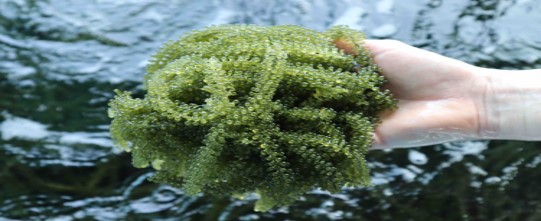Background
Seaweed aquaculture is recently being re-advertised as part of a solution to tackle complex and multidimensional global challenges. While seaweeds and their cultivation provide various ecosystem and social services, they represent a vast and largely untapped resource for industrial applications. In comparison to terrestrial bioresources, seaweeds are less explored and available at low cost, which can therefore be strategically utilised, potentially leading to high-value products.
Project Aims
The overarching goal of this project is to assess viability of seaweed industrialisation as food supplements (i.e. nutraceuticals) and feed-additives for fish/shrimp aquaculture in Germany and New Zealand through sustainable harvesting and processing practices.
Specifically, we will assess the suitability of three genera regularly washed ashore as beach cast along the coastline of Europe and/or New Zealand (Sargassum, Ulva, and Ecklonia, each with unique polyphenolics and anti-microbial properties, and one invasive species new to the North-Atlantic and Germany and actively managed and removed from reefs in New Zealand (Undaria pinnatifida), for nutraceutical application.
In order to prepare for potential industrial application in future biotechnology projects, BioASSP will target the following four objectives:
Objective 1: Optimizing methods of raw material extraction and processing
Objective 2: Assessment of culturing and growth conditions
Objective 3: Quantifying macroalgal antioxidant potential
Objective 4: Synthesis and integration of extraction protocols for up-scaling macroalgal technology





